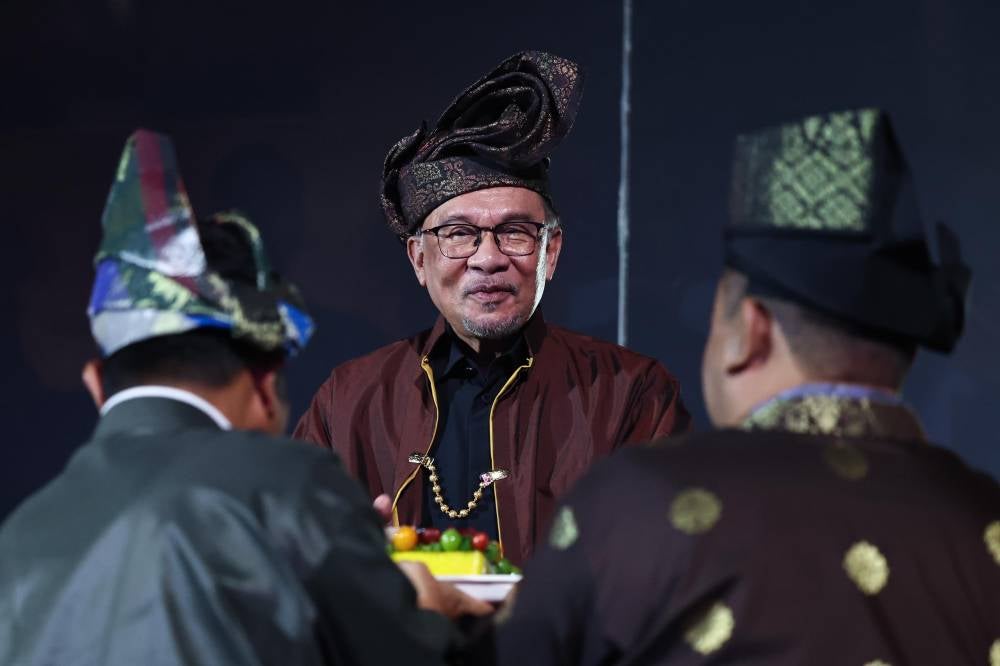From Hope to Hurdles: Anwar Ibrahim’s struggle with media freedom in Malaysia
Rather than championing free speech, recent actions suggest an alarming trend towards media suppression such as requiring licensing for social media platforms and questioning of journalists to reveal their sources.

FOR nearly a quarter of a century, a good segment of the Malaysian population looked to Datuk Seri Anwar Ibrahim as a beacon of hope, thus the moniker Pakatan Harapan. Away from Putrajaya as leader of the Opposition, he valiantly battled for justice, championed the marginalised, and defended freedom of speech.
Today, he stands as Malaysia’s tenth prime minister, two years into his term. Unfortunately there have been accusations that the fighter for freedom has turned into a defender of his throne.
Assuming the highest office, Anwar faced the Herculean task of transforming ideals of justice and equality into action. Undoubtedly, leading a nation is infinitely more complex than rallying opposition.
However, concern arises when the once-steadfast advocate for liberty is now leading an administration embroiled in confrontations with the media, with the country dropping 34 places over the past year in the press freedom index. We can argue over the objectivity of RSF; but remember that when we topped Southeast Asia in the same index, we celebrated.
In this age of digital media, misinformation poses a significant threat. Every day, Anwar and his administration find themselves amidst a whirlwind of false narratives, baseless accusations, and distorted truths. It’s a challenging and often infuriating battleground.
However, employing the might of the state such as the police force to suppress these narratives can take a toll on a nation’s democratic pillars. Even if no further action is taken, the intimidation is enough to bring down confidence in the government’s promise to protect media freedom. Furthermore, those who are on the current government’s side sure remember the intimidation of years and decades past.
As the saying goes, "power corrupts, and absolute power corrupts absolutely."
Rather than championing free speech, recent actions suggest an alarming trend towards media suppression such as requiring licensing for social media platforms and questioning of journalists to reveal their sources. The very media once leveraged to voice the struggles of the marginalised is now being stifled.
It’s a paradox that we see all too often in politics: the fight for justice can morph into a battle for supremacy. Instead of engaging in transparent dialogues and addressing misinformation head-on, there’s a growing tendency to clamp down. Police involvement and harsh measures against the media do not align with the democratic Malaysia Anwar once envisioned. Of course it is not ISA-level intimidation, but I think it is time we talk about the future and not the past.
Rather than viewing media criticism as a threat, the government should see it as an opportunity. Possessing the power to sway public narrative, the prime minister and other ministers can easily clarify their words and actions using the multiple platforms available today.
Can they convince all? Of course, not. But with zero per cent effort there is a 100 per cent chance of failure. Proactive communication, rather than defensive suppression, would restore faith in the current leadership.
The Prime Minister has platforms at his disposal – national addresses, press conferences, social media channels. By leveraging these tools to elucidate his policies and decisions, the government can combat misinformation constructively.
Let journalists probe and question; let these moments become opportunities for transparency and accountability. Find competent communicators and advisors who can handle the barrage of misinformation. Focusing too intently on maintaining one's position often leads to an erosion of the very principles that garnered public support.
It's understandable that, after 24 years in the opposition, the political limitations he currently faced can be frustrating. For years, Anwar faced a barrage of attacks, his every word and action scrutinised, even physically assaulted in jail.
The long and arduous journey to the prime minister's office was not just a political struggle but a personal one. Yet, the true strength of leadership lies in its ability to stand tall amidst criticism and to foster an environment where citizens can freely express dissent. As the prime minister, he now possesses tools and avenues to clarify and correct misinformation that do not involve harsh measures.
As Malaysians, we yearn for a prime minister who symbolises hope and change. We remember the perseverance, the fire, and the undying commitment to justice that trail Anwar wherever he goes.
Though the weight of a nation’s expectations can be heavy, Anwar can choose a path that reaffirms his commitment to democratic values. Instead of silencing dissenting voices, he can become the prime minister who listens, engages, and explains. His leadership can be where power is not a tool for suppression, but an instrument for progress, dialogue, and unity.
While the challenges he faces are immense, the solutions lie in his foundational principles. Encouraging open discourse, combating misinformation with truth, and prioritising the nation over power preservation can restore faith in this government. It is time for Anwar to remember why he fought and for whom he continues to serve.
Syaza Shukri, PhD, is an associate professor and the current Head at the Department of Political Science, IIUM. The views expressed in this article are the author's own and do not necessarily reflect those of Sinar Daily.
Download Sinar Daily application.Click Here!















